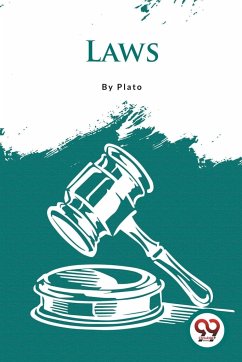The Laws is Plato's final, most extensive, and arguably most despised treatise. Three elderly men-an anonymous Athenian, a Spartan named Megillus, and a Cretan named Clinias-converse about political philosophy throughout the book. These men are drafting the laws that will govern Magnesia, a brand-new Cretan colony. The government of Magnesia is a blend of democratic and authoritarian values that seeks to create a joyful and morally upright society for all of its residents. Like Plato's other works on political theory, such as the Statesman and the Republic, the Laws also includes substantial treatments of psychology, ethics, theology, epistemology, and metaphysics in addition to political theory. The Rules, in contrast to these other writings, combine political philosophy with practicing law and go into considerable depth about the laws and procedures that Magnesia should have. Although many have attributed Plato's poor writing to his advanced age at the time of composition, readers should remember that the book was never finished. The Laws' arguments are worth our study, despite the fact that some of these objections are valid, and the dialogue has a unique literary quality.








